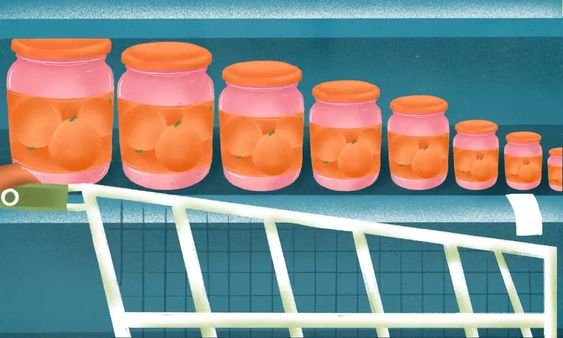In the world of consumer products, a silent transformation has been taking place, and it goes by the name of “shrinkflation.” This practice, employed by manufacturers across industries, involves reducing the size or quantity of a product while keeping the price unchanged. From snack bags to household cleaners, consumers are unknowingly receiving less bang for their buck.
Cracking Down on Deceptive Practices
While some countries have adopted a passive stance toward shrinkflation, South Korea has taken a bold stance against this practice. The nation’s Fair Trade Commission, the antitrust regulator, has issued strict guidelines to manufacturers. If a company reduces the size or weight of a product, they must prominently display a label on the packaging for at least three months, clearly stating the change.
France, too, has joined the fight against shrinkflation. Starting in July, French retailers will be required to affix a label on downsized products for two months, informing consumers of the altered quantity or size.

The Impact of Shrinkflation on Consumers
In an era of persistently high inflation, shrinkflation adds insult to injury for consumers already grappling with eroding purchasing power. From the iconic Oreo cookies in the United States to the trusty Listerine mouthwash in the United Kingdom, numerous brands have succumbed to the temptation of downsizing their offerings.
President Joe Biden has voiced his frustration with this practice, remarking, “I’ve had enough of what they call ‘shrinkflation’ – sports drinks bottles are smaller, a bag of chips has fewer chips, but they’re still charging it just as much.”

A Call for Transparency and Fairness
Proponents of the crackdown on shrinkflation argue that it is a deceptive practice that violates the principles of transparency and fairness. Consumers have the right to be informed about changes in product size or quantity, especially when the price remains the same.
As the cost of living continues to rise, shrinkflation adds an unnecessary burden on households already stretched thin. By mandating clear labeling and disclosure, governments aim to empower consumers with the knowledge they need to make informed purchasing decisions.
Read More:- Battle of Fighter Jets: American F-22 Raptor vs Chinese J-20
Conclusion
Shrinkflation is a contentious issue that has sparked debates around consumer rights, fair business practices, and the need for greater transparency. While some companies may view it as a necessary adjustment to cope with rising costs, it ultimately undermines consumer trust and erodes the value proposition of their products.
As more countries join the ranks of South Korea and France in implementing regulations against shrinkflation, the hope is that manufacturers will prioritize honesty and transparency, fostering a more equitable and trustworthy marketplace for all.
Do you like anime? Visit Pop Media Pulse
